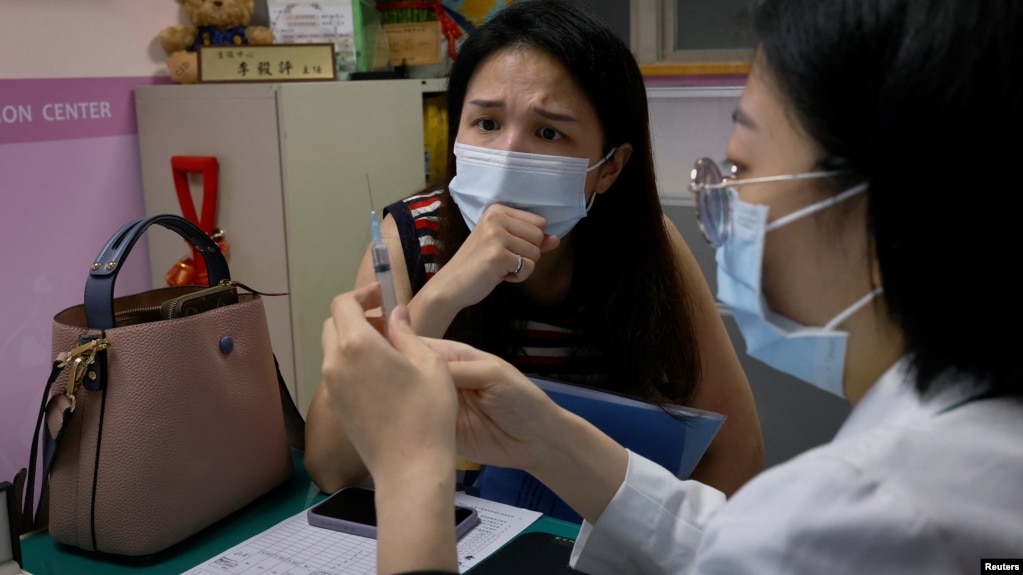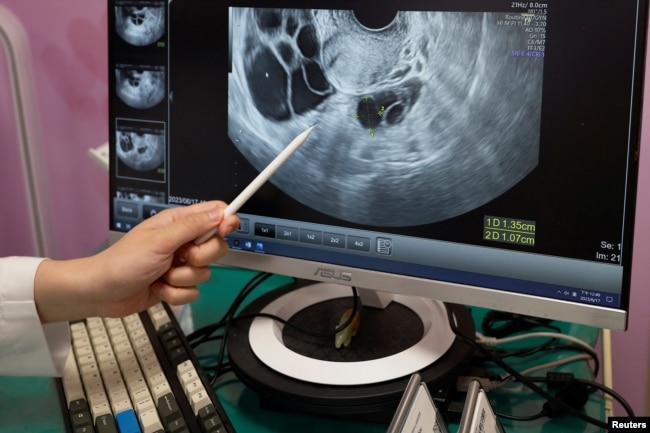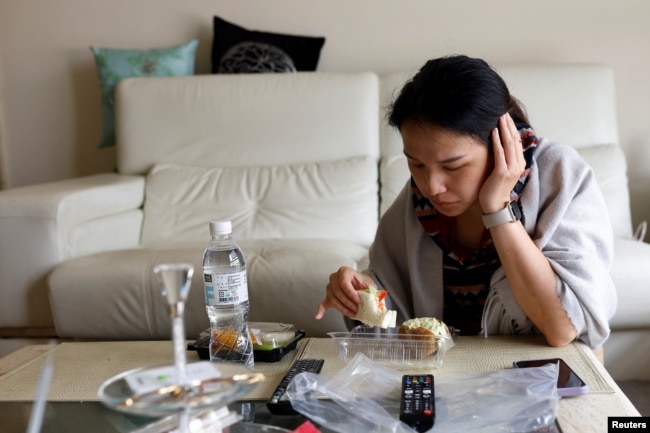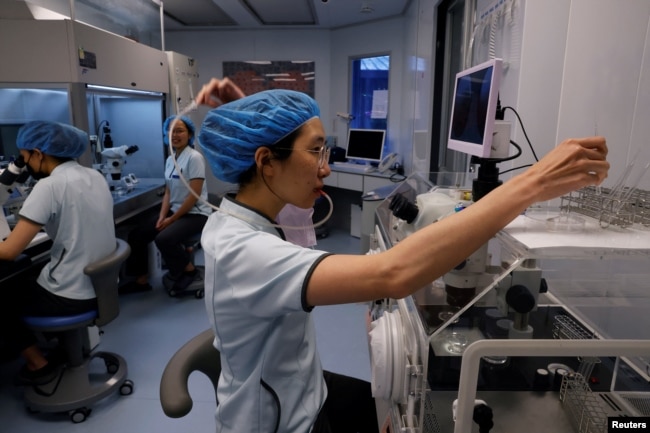Single Women in Taiwan Freeze Their Eggs
for the Future

Some single women in Taiwan are medically freezing their eggs although they cannot currently use them to have children unless they marry.
The women say they want to make sure they have usable eggs stored in case the island’s government changes its current law. Taiwanese law currently permits single women to freeze their eggs. But it is only legal for them to use those eggs if they marry a man.
Self-ruled Taiwan has a fertility rate of 0.89 children per woman. That is less than half of the replacement rate of 2.1 necessary to prevent decreasing population. It is also one of the world's lowest rates, following South Korea and Hong Kong.

Li Yi-ping, chief director of the reproduction medical centre, points to a screen displaying Vivian Tung's ovarian follicles during a regular check-up at the Shin Kong Wu Ho-Su Memorial Hospital in Taipei, Taiwan, June 17, 2023. (REUTERS/Ann Wang)
Doctors in Taiwan say the law has led to about eight percent of women using their frozen eggs. This compares to about 38 percent of women in the United States.
Vivian Tung is a 33-year-old Taiwanese marketing director. She injects herself with a drug daily over a two-week period, which was part of the process needed to freeze her eggs. The drug Rekovelle is a hormonal medicine used to improve egg production.
Tung is one of a rising number of Taiwanese women who are choosing to freeze their eggs so that, later in life, they can become pregnant and have a child. "It's my insurance policy," she told the Associated Press. She explained that many women in Taiwan are independent, career-centered, and not necessarily looking for a husband to have children with.

Vivian Tung, 33, who is one of a rising number of women opting to freeze their eggs, eats her first meal since the egg retrieval surgery, at home in New Taipei City, Taiwan June 19, 2023. *REUTERS/Ann Wang)
"My family is very supportive and respect my choice. When they hear that I buy insurance for myself, they also feel very good," Tung said.
Taiwan became the first place in Asia to legalize same-sex marriage in 2019. In May, the island’s government gave same-sex partners the right to jointly adopt a child.
Records show that only about four percent of children in Taiwan are born out of wedlock, or born to parents who are not married. This compares with about 40 percent of children in the United States.

Embryologists work on creating viable embryos to be either used in an in vitro fertilization transfer or frozen for later use in a laboratory at the Stork Fertility Clinic in Hsinchu, Taiwan, May 16, 2023. (REUTERS/Ann Wang)
Demand for egg freezing in Taiwan has risen sharply in recent years. A study carried out by National Taiwan University Hospital showed that, over the past three years, the number of women aged 35 to 39 who froze their eggs was up 86 percent.
More than 12 centers offering egg-freezing services opened in Taiwan in the year following the COVID-19 pandemic, said Dr Lai Hsing-Hua. He is founder of Taiwan's first egg bank, the Stork Fertility Clinic.
Lai said the fertility centers in Taipei and Hsinchu have reported a 50 percent increase in patients from the year before. As a result, the centers have frozen the eggs of more than 800 women.
_______________________________________________
Words in This Story
hormone – n. a natural substance that is produced in the human body and determines how the body grows or develops
insurance – n. an agreement in which you regularly pay company money so that it will pay to cover your costs if you have an accident, injury, or lose the use of property you own
adopt – v. to legally become the parents of someone else’s child and to take responsibility for them
(born) out of wedlock – idiom born when one’s parents are not married
https://learningenglish.voanews.com/a/single-women-in-taiwan-freeze-their-eggs-for-the-future/7210134.html